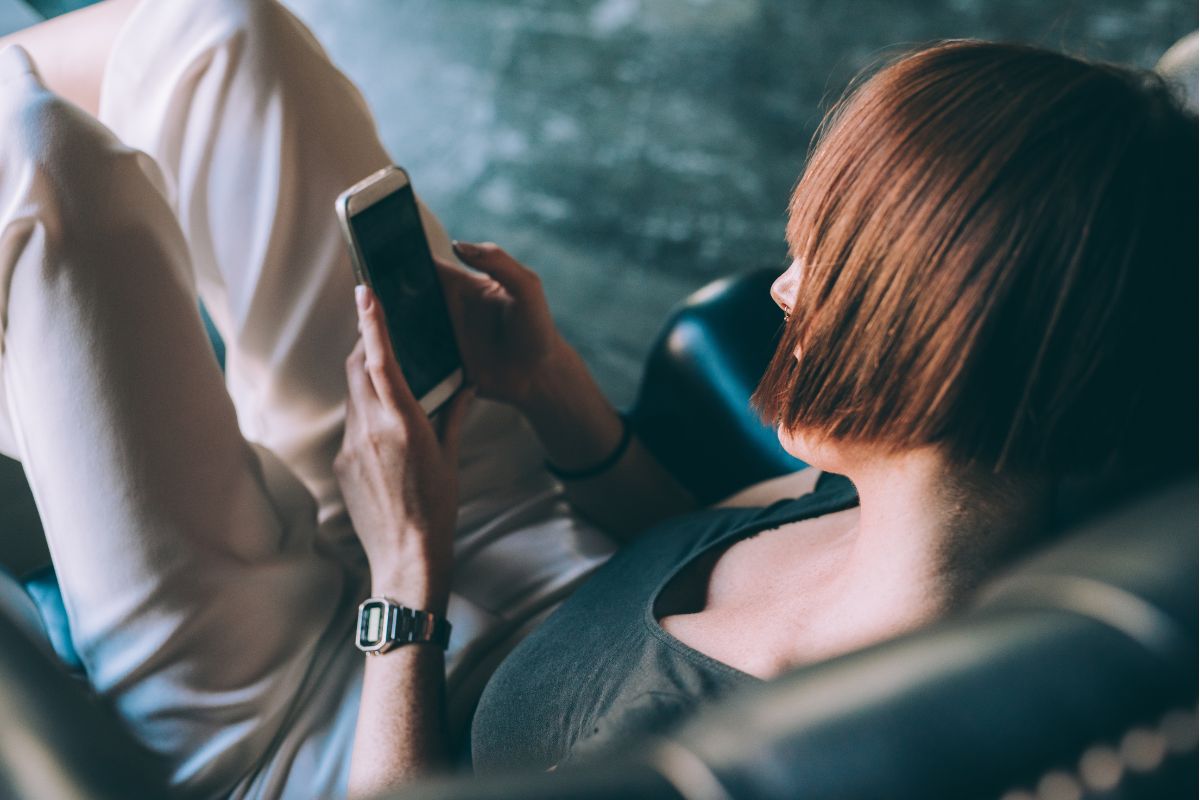
Screen time and sleep
The increasing screen time in our everyday lives not only has a significant impact on our sleep, but can also lead to postural problems and increased exposure to electromagnetic radiation. You can find out exactly what screen time does to our health in this article. You can also get exclusive access to the free webinar by Prof. Dr med. h.c. Günther W. Amann-Jennson on the topic of "Screen time and sleep".
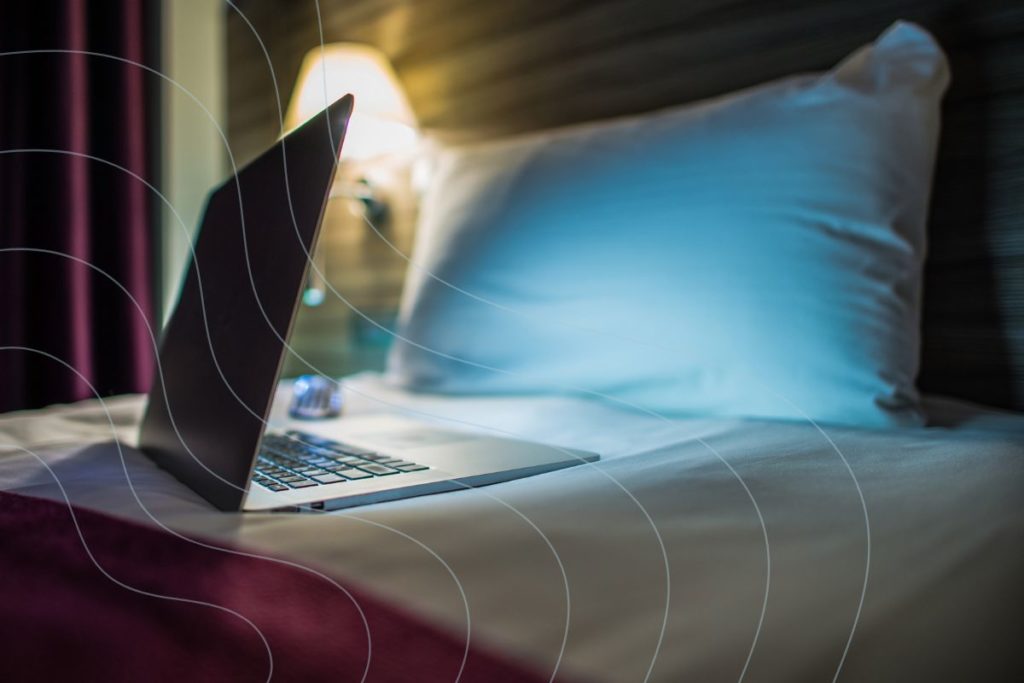
Screen time: influence on sleep, posture and radiation exposure
In our digitalised world, screens are omnipresent. They make our everyday lives easier, but can also have a negative impact on our health. Sitting in front of a screen for long periods can lead to postural problems, as the body often remains in an unnatural posture. Neck and back pain are often the result [1]. Screen time before going to bed is particularly critical. The blue light from screens can disrupt the production of the sleep hormone melatonin and thus influence the natural sleep-wake rhythm [2]. The effects of electromagnetic radiation, often referred to as electrosmog, on sleep are also hotly debated.
Is your screen time disrupting your sleep?
How much time do you spend in front of a screen every day? The global average is 6 hours and 57 minutes, including around 3 hours and 43 minutes in front of a mobile phone [3].

Back and neck pain from too much screen time
Incorrect sitting posture and too little movement can lead to tension in the neck and back. Experts recommend regular breaks to loosen up the muscles and correct posture. Ergonomic workplace design and targeted exercises can help to alleviate complaints and prevent them in the long term [4].
However, these measures are not sustainable if posture is not corrected at night. An orthopaedic pillow that supports and relieves the head and neck muscles is particularly important. Even better is an orthopaedically correct sleep system that supports the spine and relieves pressure on the intervertebral discs.
This can effectively counteract the negative effects of screen time.
-
Targeted exercises to correct posture
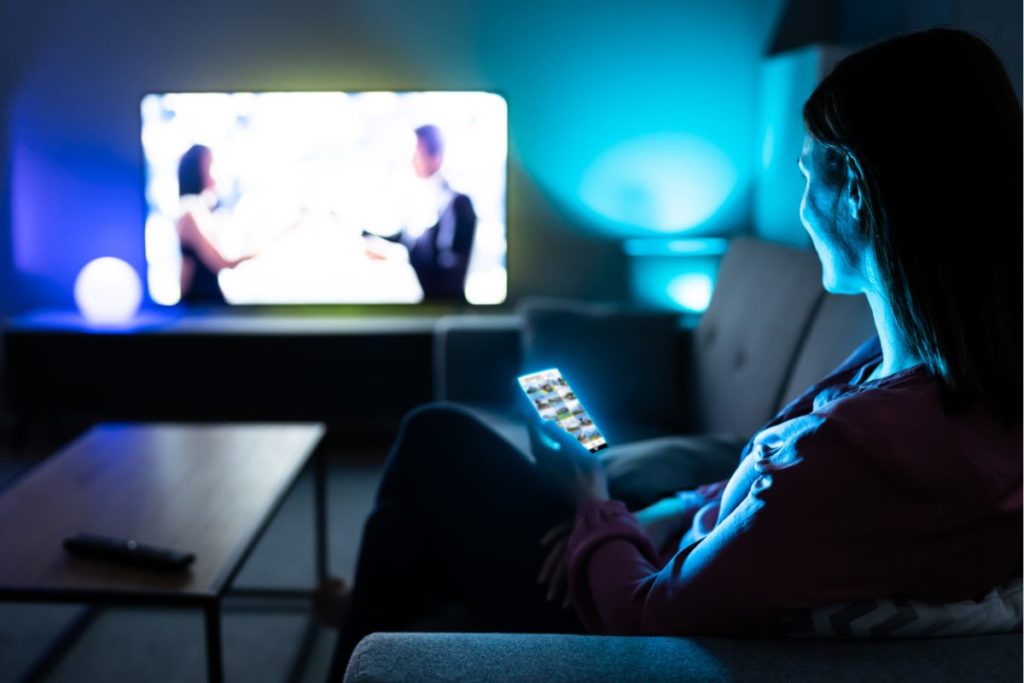
Screen time and sleep disorders
The blue light from screens can disrupt the production of the sleep hormone melatonin and thus affect our natural sleep-wake rhythm. This often leads to difficulty falling asleep and can affect the overall quality of sleep [5].
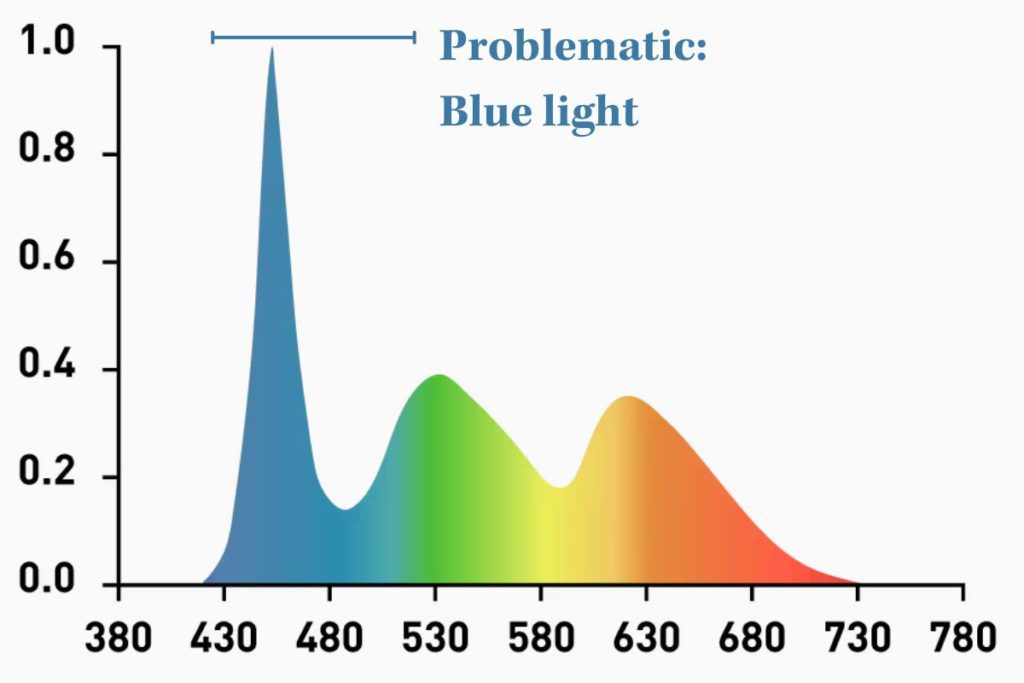
A direct comparison quickly makes it clear how great the influence of the light spectrum on a room or on our perception in this room actually is:
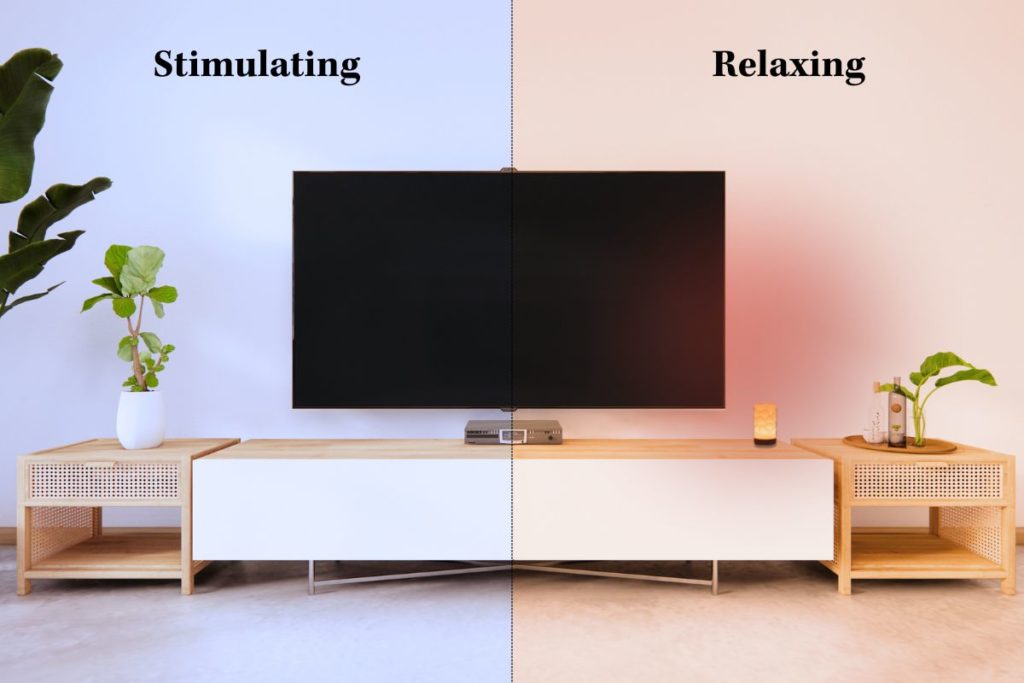
In addition, mental stimulation from screen content, such as exciting films or social media, can make it more difficult to calm down and fall asleep [6].
We therefore recommend cautious use of electronic devices before going to bed:
-
2-3 hours before going to bed, no blue light (screen filter or blue light filter glasses)
-
No screens and media 1 hour before going to bed
-
No electronic devices in the bedroom
-
Amber light at least 30 minutes before bedtime
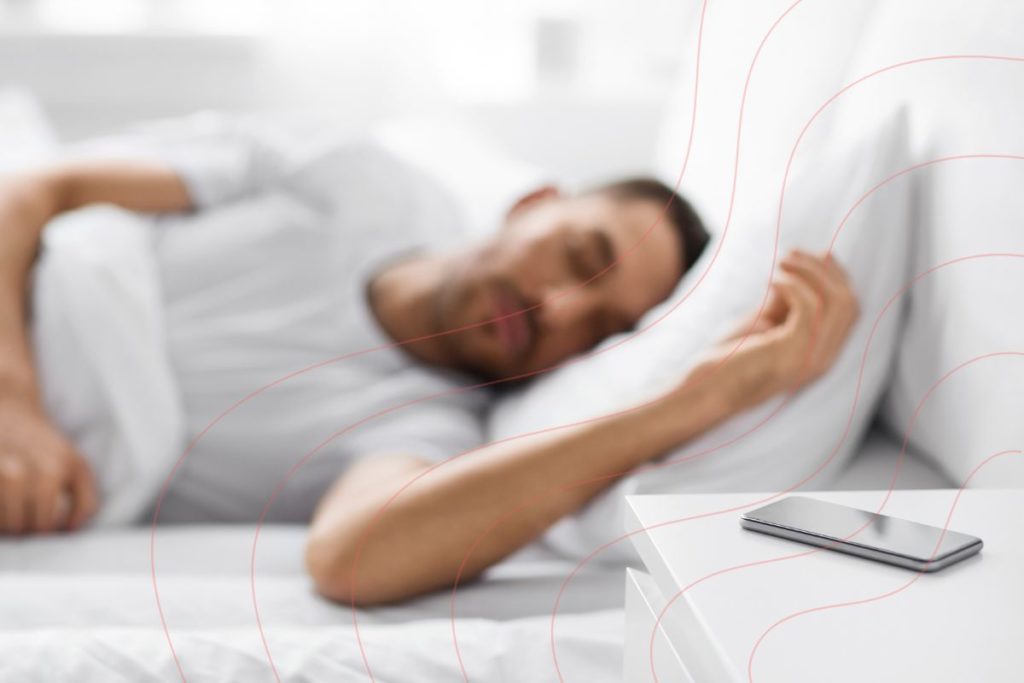
Electromagnetic fields and sleep
While scientists are still investigating the long-term effects of exposure to electromagnetic radiation (EMS), there is evidence that these fields can affect brain activity during sleep [7]. Sensitivity to electromagnetic fields appears to vary from person to person. Some people feel no difference at all, while others seem to perceive even the slightest radiation.
For this reason, many people have already decided to switch off their mobile phones at night or at least put them in flight mode to avoid possible interference. We recommend avoiding electronic devices in the bedroom and switching off Wi-Fi at night to minimise exposure to electromagnetic fields during sleep and promote undisturbed regeneration.
Research in this area is constantly evolving and it is important to keep up to date and maintain healthy habits to protect the quality of our sleep. That's why we recommend:
-
No electronic devices in the bedroom or only in flight mode
-
Switch off WLAN at night
-
Lokosana® earthing pad for extra protection
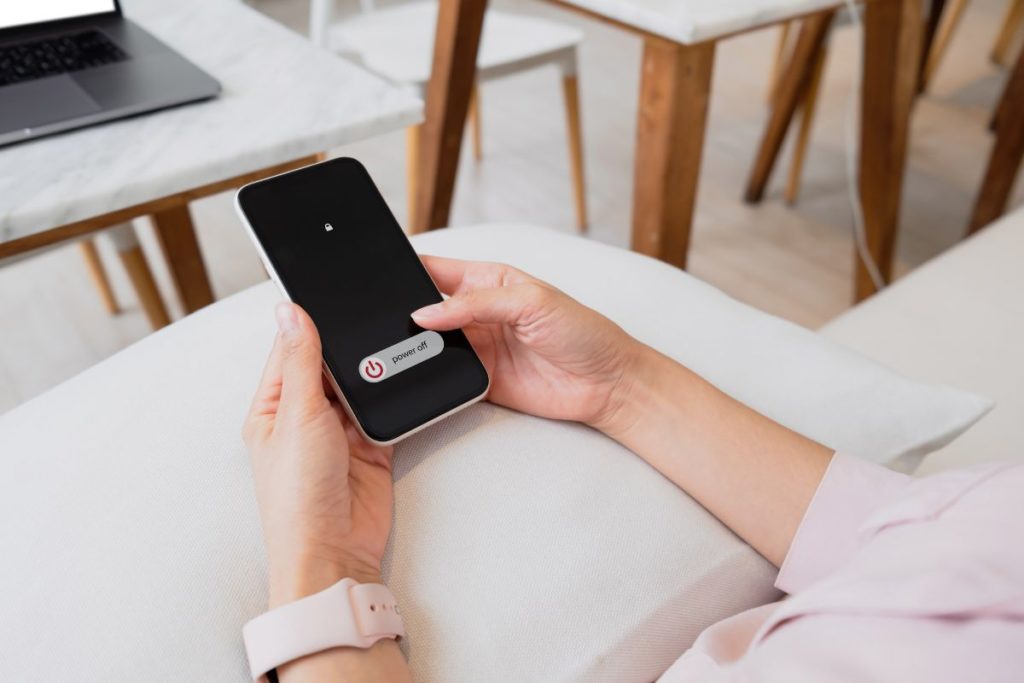
Effectively compensate for screen time
To reduce the negative effects of screen time, we should consciously take screen breaks in our everyday lives and limit the use of electronic devices, especially before going to bed. In this way, we can protect our sleep and promote our health. Even if there is still some scientific disagreement about the potential risks to our health, there is no harm in being cautious and taking preventative action in response to these evolutionary new conditions.
After all, our bodies are developing much more slowly than current technological progress. This becomes particularly clear when we think of the postural damage caused by working too long at a computer screen. That's why we are in favour of ensuring that we have as natural an environment as possible, at least at night, when our bodies and minds are regenerating.



